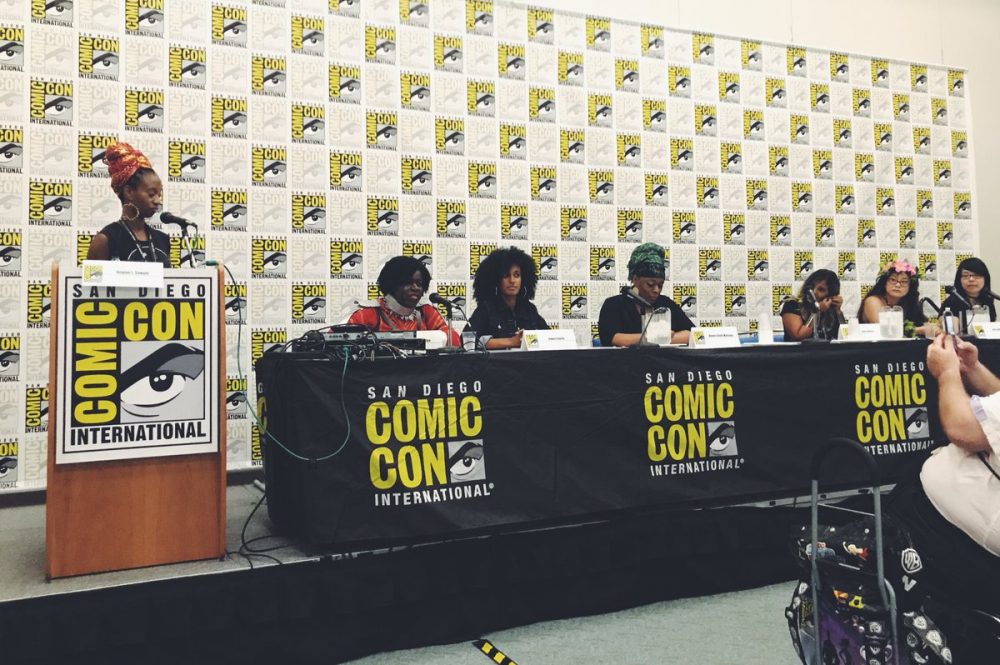
Five years after the first Women in Comics panel, how much has changed and how much has stayed the same? Do we even need diversity panels anymore or are they passé? Those topics and much more were discussed at the Thursday’s Women in Comics: Race, Gender, and the Comic Book Medium panel.
Moderated by Regine L. Sawyer (WinC founder) along with guests Jewels Smith ([H]afrocentric), Vanee Smith-Matsalia (writer, educator), Jay Justice (cosplayer, activist), Alice Meichi Li (comic book artist), Leen Isabel (Pole Dancing Adventures), and Jules Rivera (comic book artist).
The illuminating hour long discussion answered the obvious: Yes. Panels like this one, that bring diversity to the forefront and are moderated and paneled by women of color are still necessary. Vanee Smith-Matsalia said the conversation about whether or not we still need these types of panels will be over when women of color, when diversity is seen in the boardrooms, when everyone has an equal seat at the table. “Until we are everywhere, we’re gunna keep talking. We’re gunna keep making noise until someone is listening.”
Alice Mich Li says that while she feels there has been some progress since the inception of the WinC panels, there’s also been a lot of tokenism. “There’s been a lot of lip service to diversity with no substance.” Much of that, Li says, comes from having a diverse cast of characters on the page, but not a diverse set of creators behind the page.
The panelists called the minimal progress a plateau, a point where there’s been some progress in terms of diversity and representation but not nearly enough. The panelists remarked that there might be a breaking point, a point where large publishers and distributors of comics will either change or the readers and consumers will go elsewhere. Justice believes that’s already happening with indie stores and Netflix occupying larger spaces in readers lives. How do we move beyond merely having one black character in a comic book, how do we move beyond tokenism in the industry and culture? Jules Rivera says that kind of change depends on the right people having the right conversations with themselves in the mirror and the willingness to change.
Regine asked the panelists how and where they found their stories represented, for teacher and curriculum developer Vanee Smith-Masalia it was a question she answered with clear conviction. “I went through nine grades never once being taught literature but I never saw myself.” Smith-Masalia implored the audience and comic publishers to ask themselves, “Why do these things exist, is it by accident?”
When thinking about oppressive literature or problematic pieces of pop culture, Smith-Masalia encouraged everyone to ask themselves difficult questions. Questions people may fear the answer to like, “Why do I need this? What is feeding into this oppressive culture? Ask yourself those questions before you can pose it to everyone else. Do I love something that much that I am willing to hurt everyone else around me. That’s what we need to start asking publishers. These are the questions.”
Each of the panelists had talked about the importance of critiquing the work of others and bringing to light problems and depictions of tokenism, but moving beyond that to creating your own spaces is vital. That’s part of why Leen Isabel says she created Pole Dancing Adventures. Each of the women expressed a kind of exhaustion with the expectation that is placed on people of color to be happy with crumbs at the table for doing the same work, if not more as white persons. That’s why this conversation will continue to happen, that’s why these panels continue to be important. These discussions will continue to be necessary until representation is so ubiquitous it is not questioned.
About Panel: The Women in Comics Collective (WinC, pronounced “Wink”) is an international organization that highlights the merit and craft work of women working in the comic book and multimedia industries. Their membership is made up of artists, writers, educators, filmmakers, show producers, art gallery directors, cosplayers, game developers, bloggers, and toy makers. Focusing on female and racial representation in comics, fandom, and the industry, panelists include moderator Regine L. Sawyer(writer, publisher, WinC founder), Jewels Smith ([H]afrocentric writer and creator, activist), Vanee Smith-Matsalia (writer, educator), Jay Justice (cosplayer, activist), Alice Meichi Li (comic book artist, illustrator), Leen Isabel (cosplayer, artist, creator of Pole Dancing Adventures), Jazmine Joyner (comic book store owner), and Jules Rivera (comic book artist).


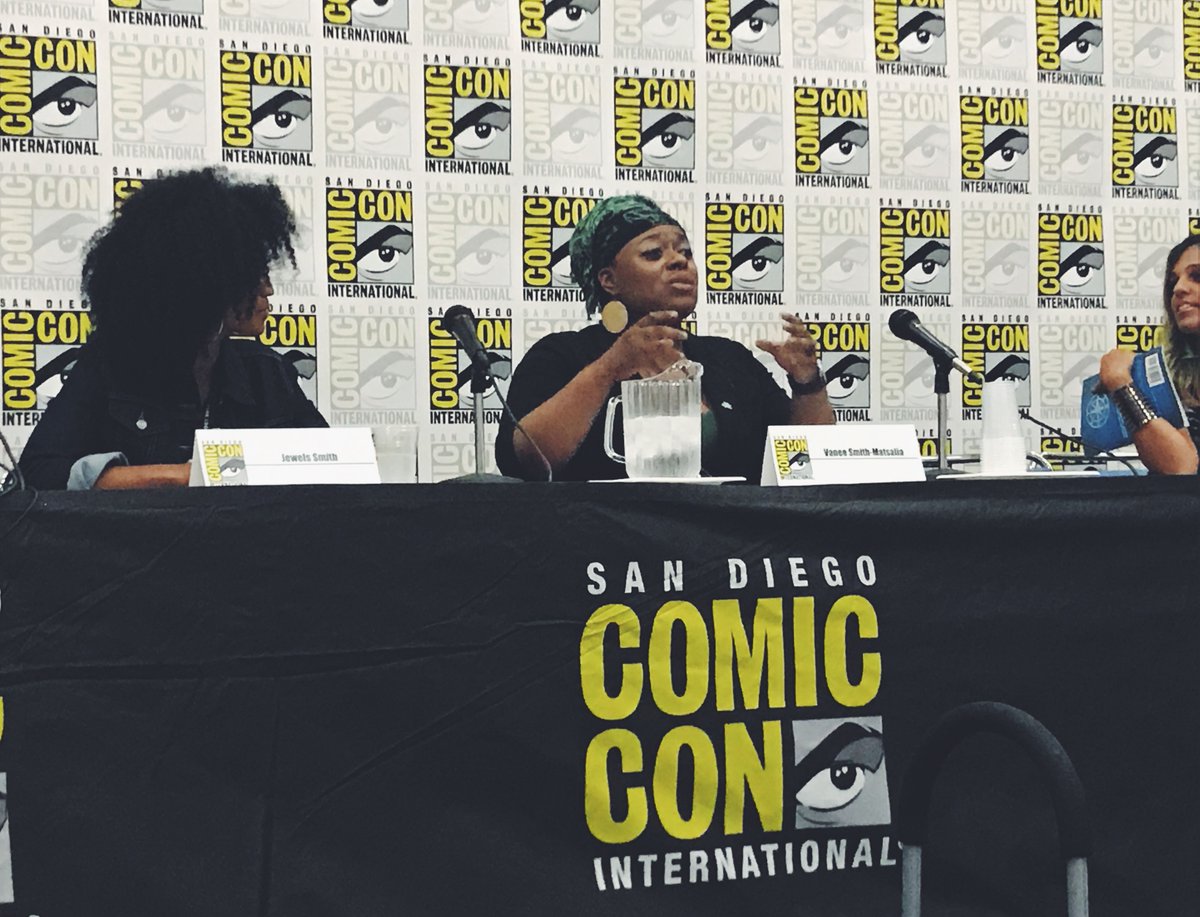
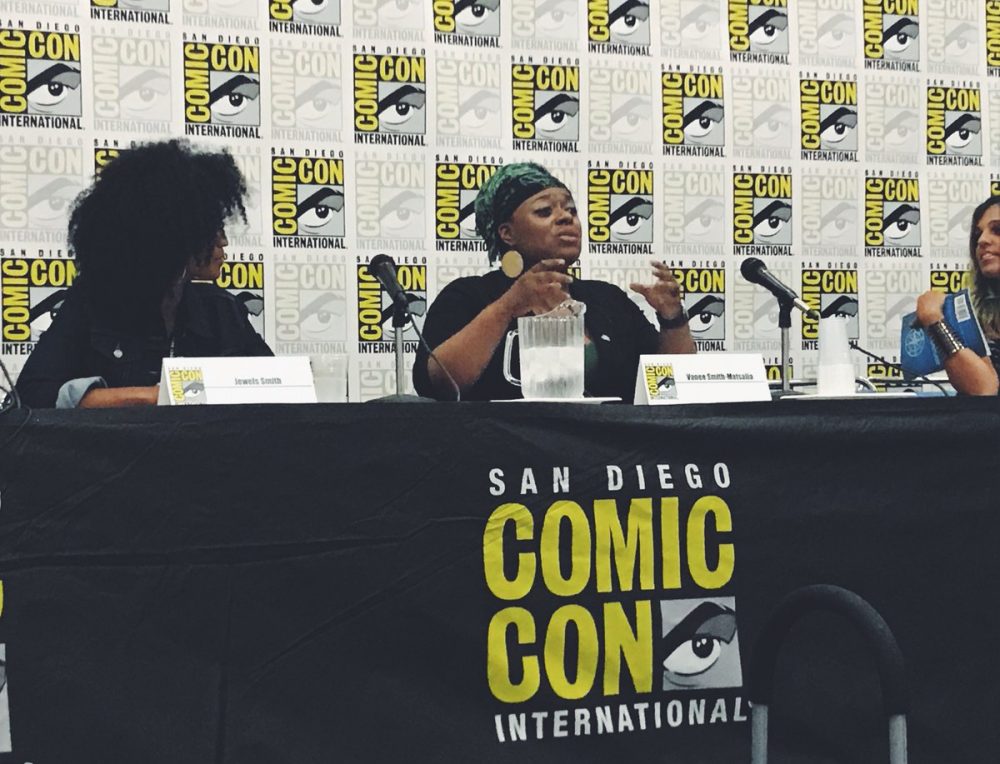
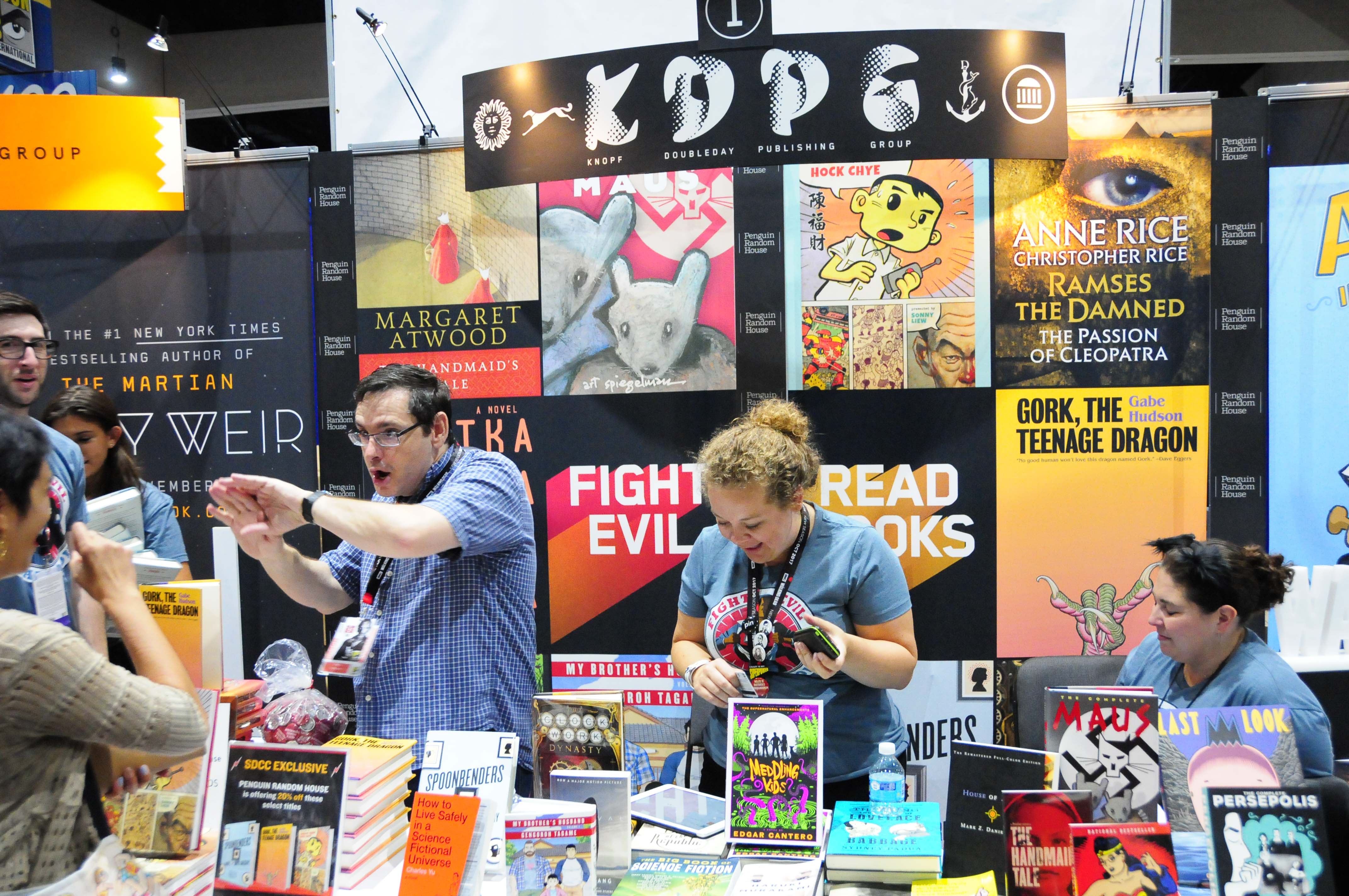
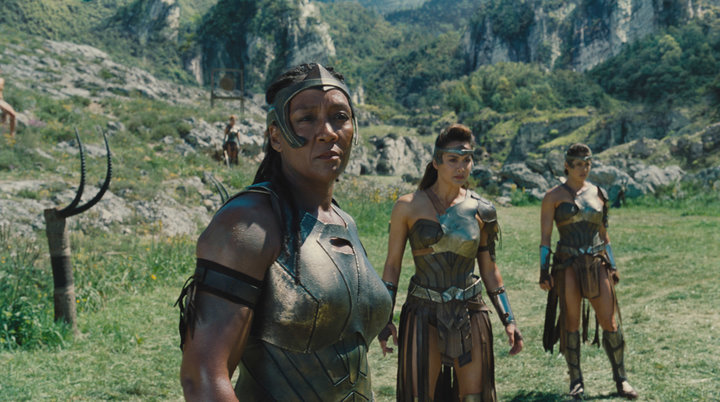
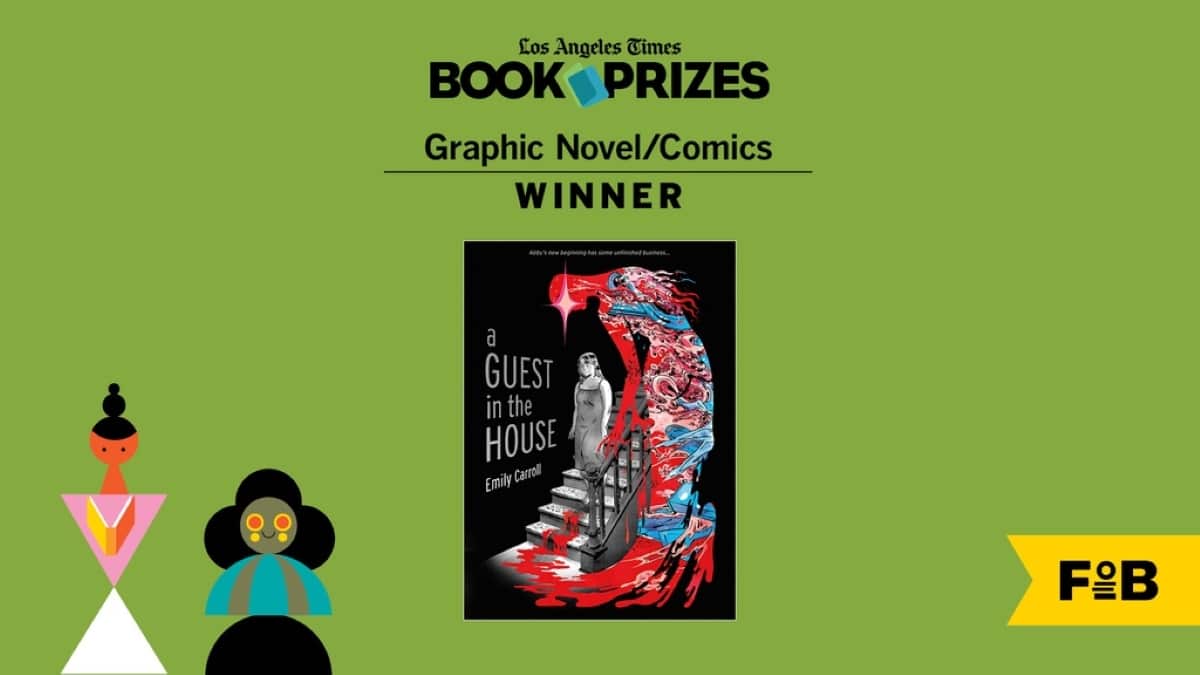

I like how when you visit the (H)afrocentric website, it doesn’t let you do anything until you agree to sign up for their mailing list. There’s a big pop-up that blocks the entire page and there is no option to not sign up for it. Either sign up for the mailing list, or get lost.
As it is, (H)afrocentric’s update schedule is very dodgy, averaging 3-4 comics a month (in May alone, there was a comic on May 4, but then nothing until May 19). That’s less than Megatokyo’s Fred Gallagher averages, and (H)afrocentric is a two-panel comic, compared to Fred’s multi-panel strips, and Fred is dealing with a child, parents in a nursing home, and a wife with cancer.
Vanee Smith-Matsalia should probably serve as a co-moderator in the future, rather than a panelist, due to the fact that she is an 8th grade middle school teacher in San Bernadino, CA and doesn’t actually work on a monthly comic or regularly updated webcomic.
Jules Rivera does mostly “corporate comics” for Mattel, focusing on Barbie.
I have heard of Alice Meichi Li, but mainly due to her album cover work.
If this WinC panel, is going to become an annual event, than next year they really should try to get Louise Simonson or Willow Wilson to join the panel to bring some higher-profile female creators to the table.
Try and invite Dwayne McDuffie’s widow, Charlotte Fullerton, to the event.
What was the panel’s attendance?
Attendance was about 30% full.
My daughter wanted to attend because she mis-read the schedule and thought it was a panel for the cartoon “Winx Club.”
She was very upset when that turned out not to be the case.
Looking at that picture, “diversity” doesn’t seem to be their strong suit. There’s a lot of constructive things that could be said about the subject, but it’s not worth it for any guy to get involved with because merely supporting diversity is never enough unless it also comes with complete and abject capitulation and some sort of self-flagellation.
Comments are closed.